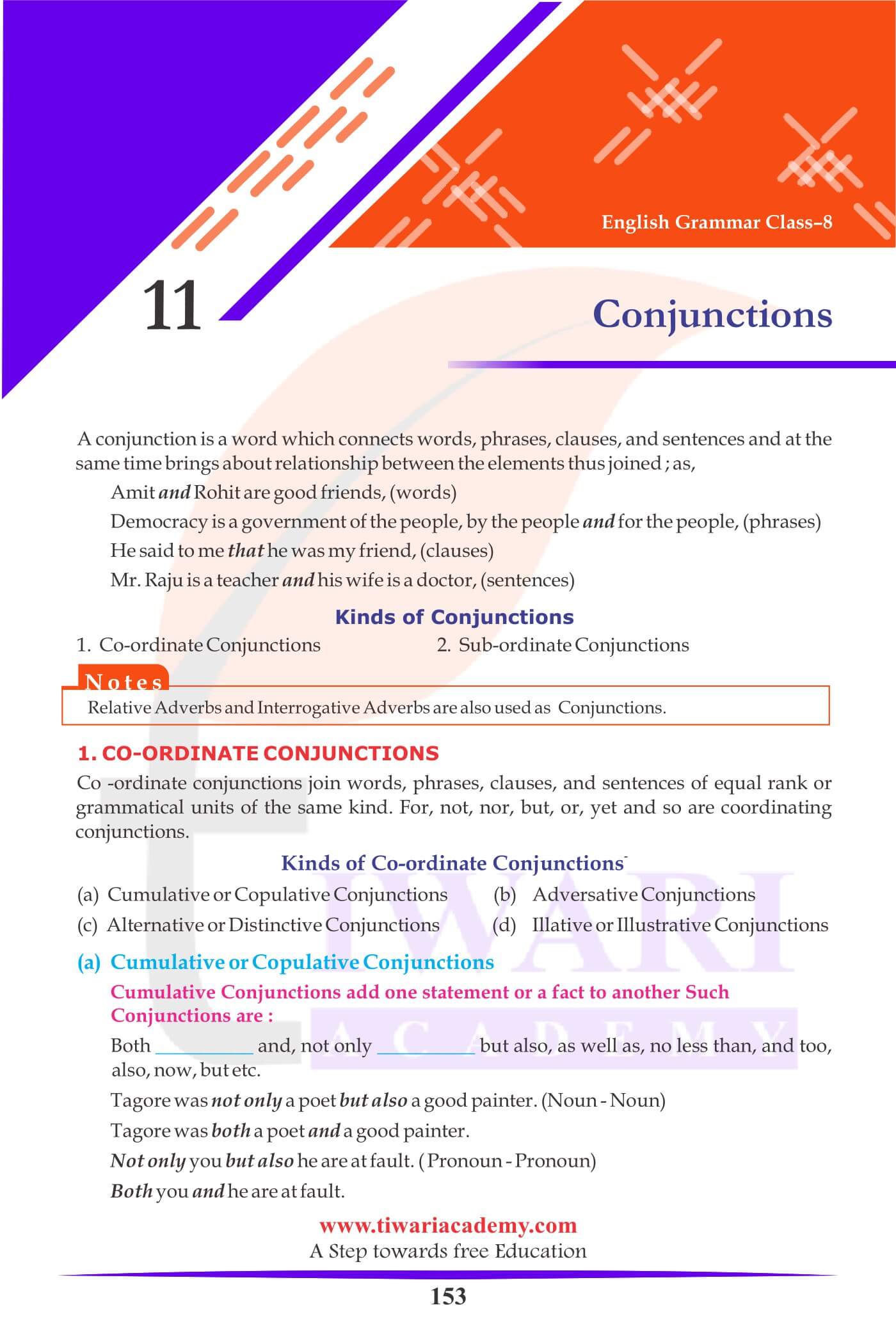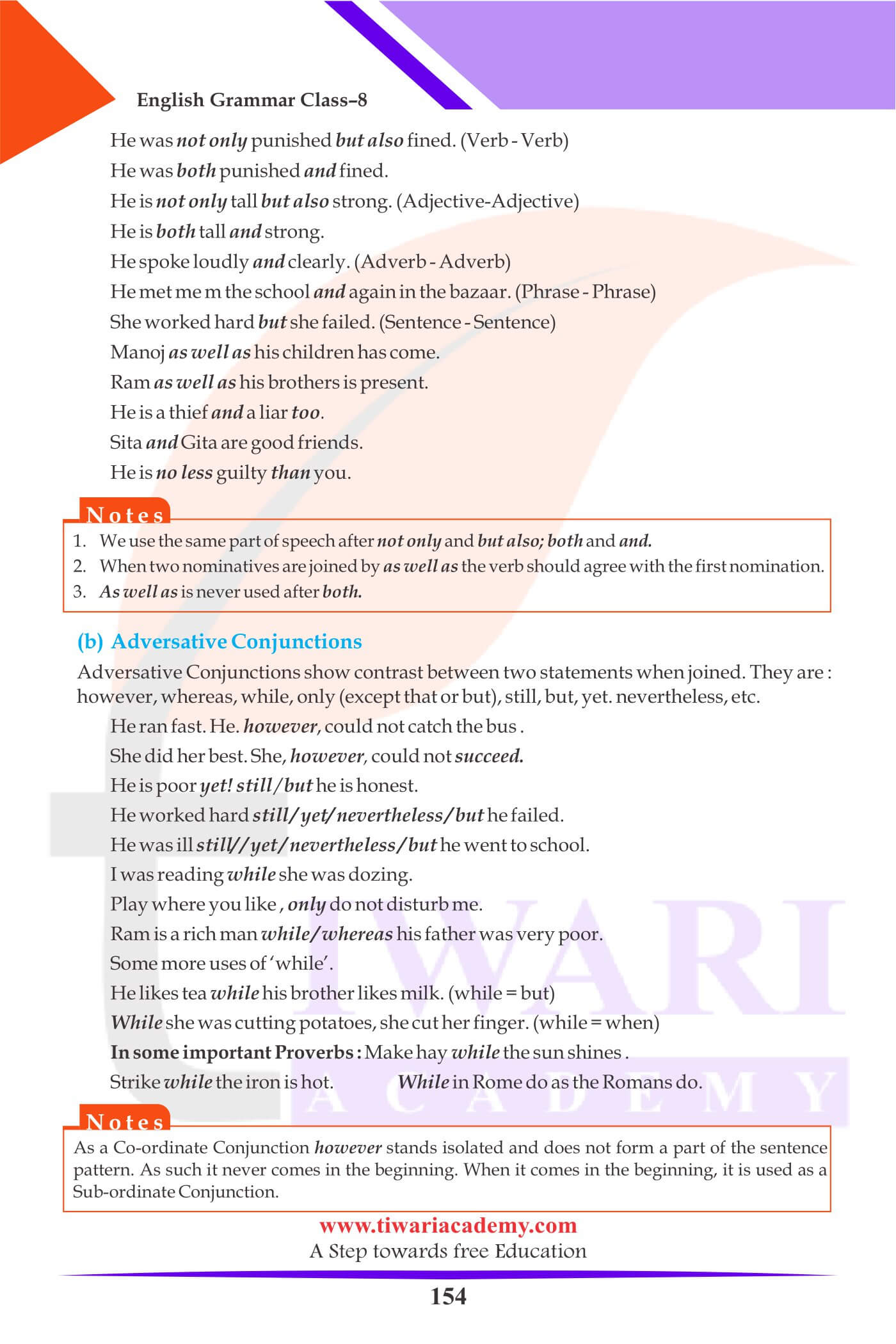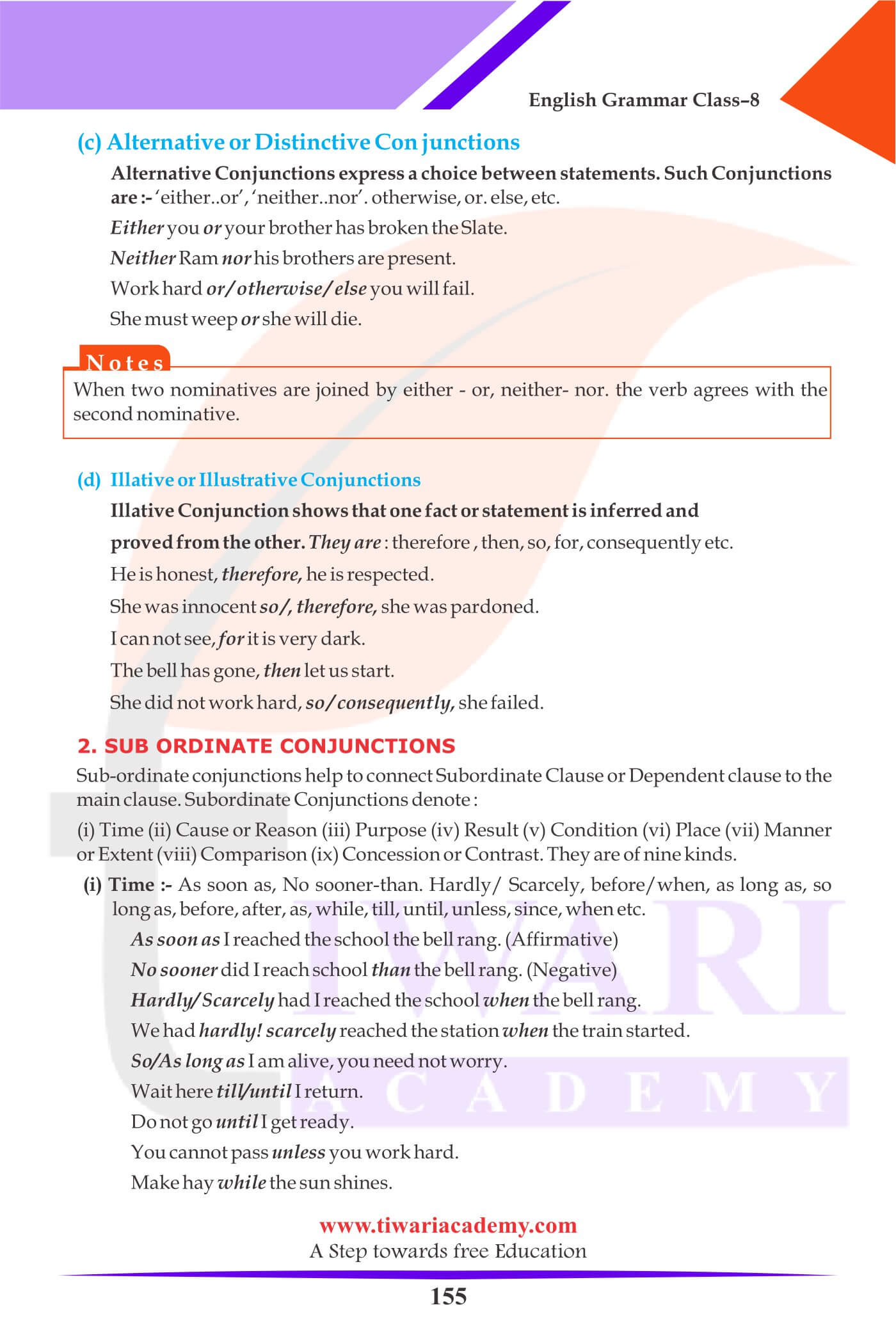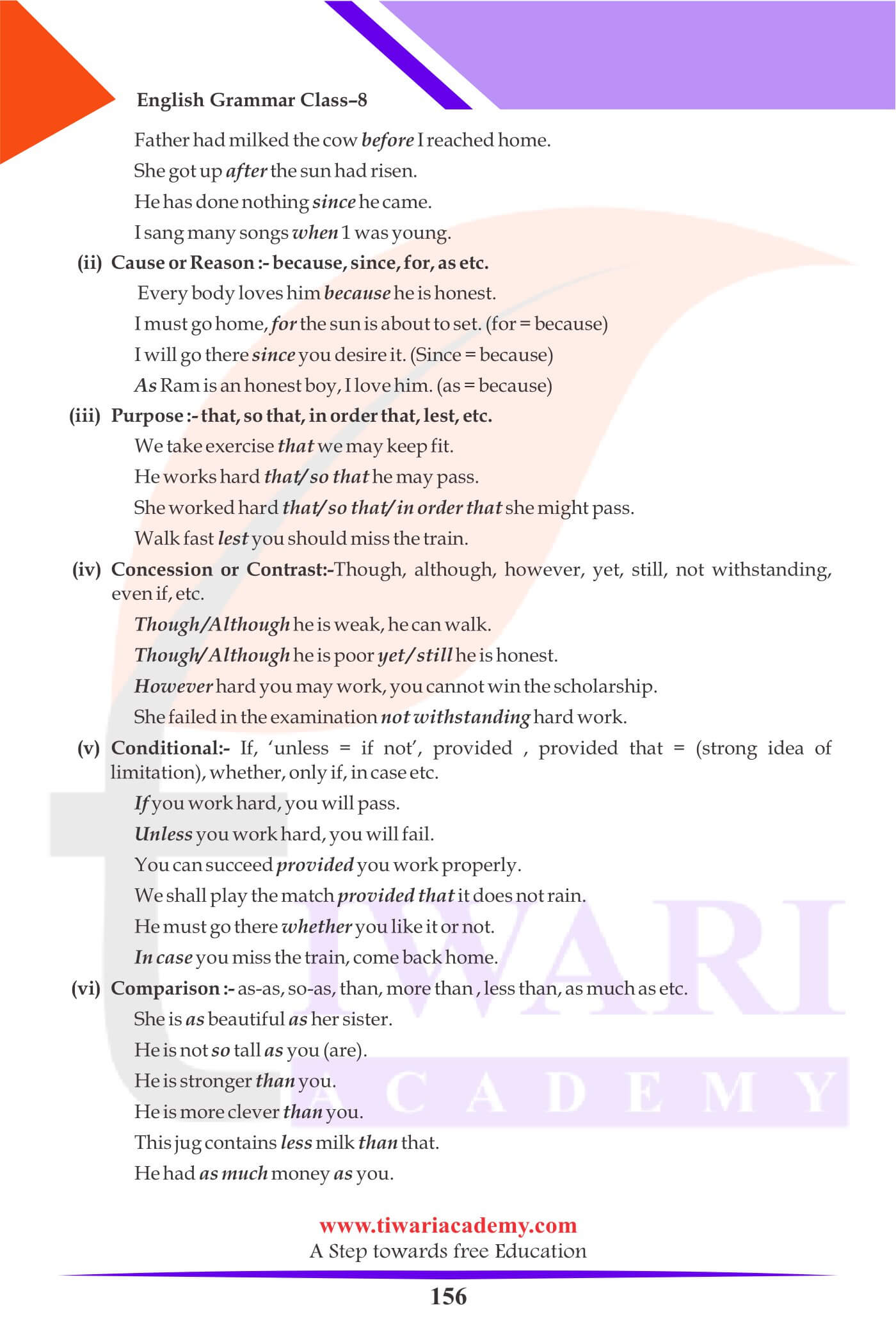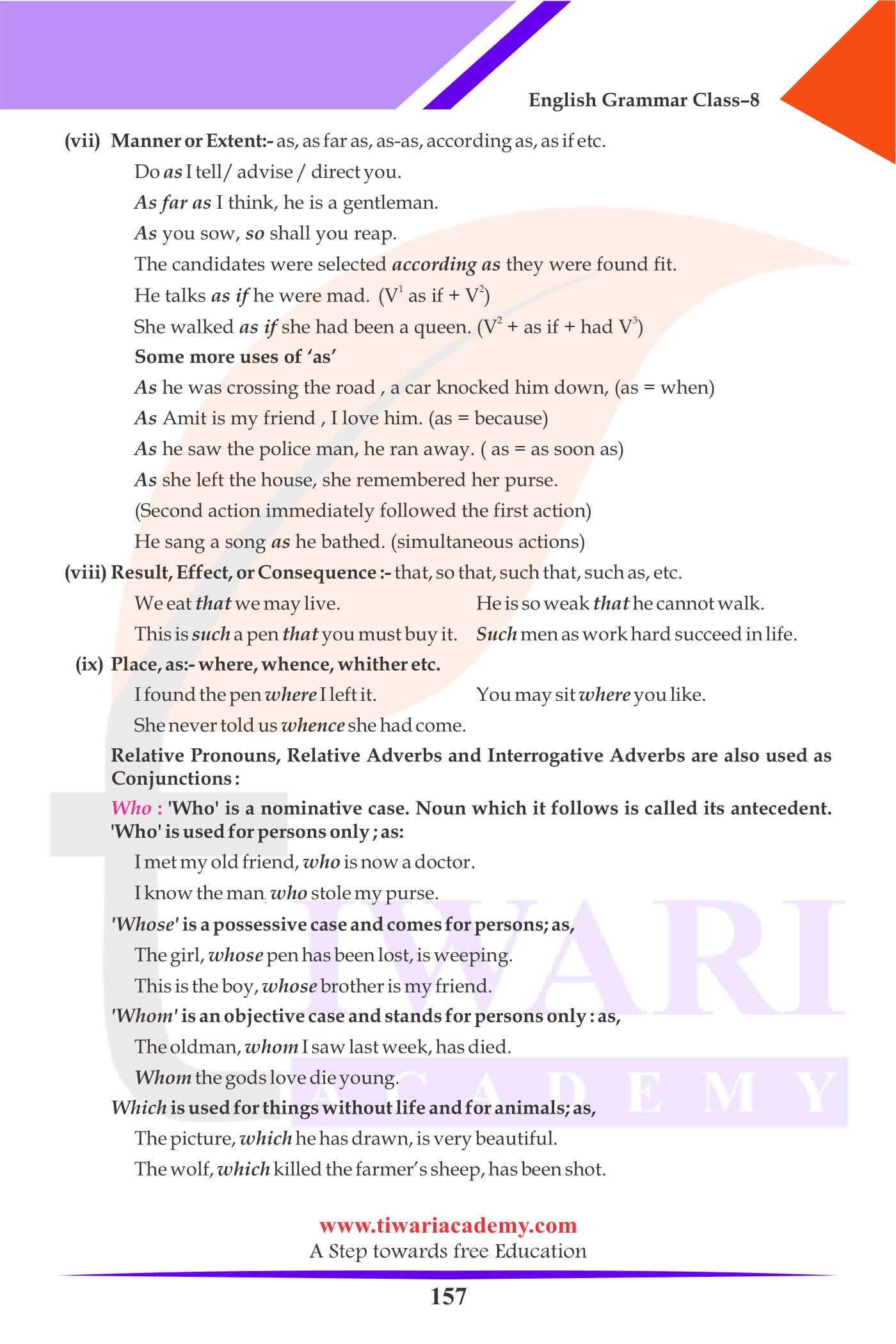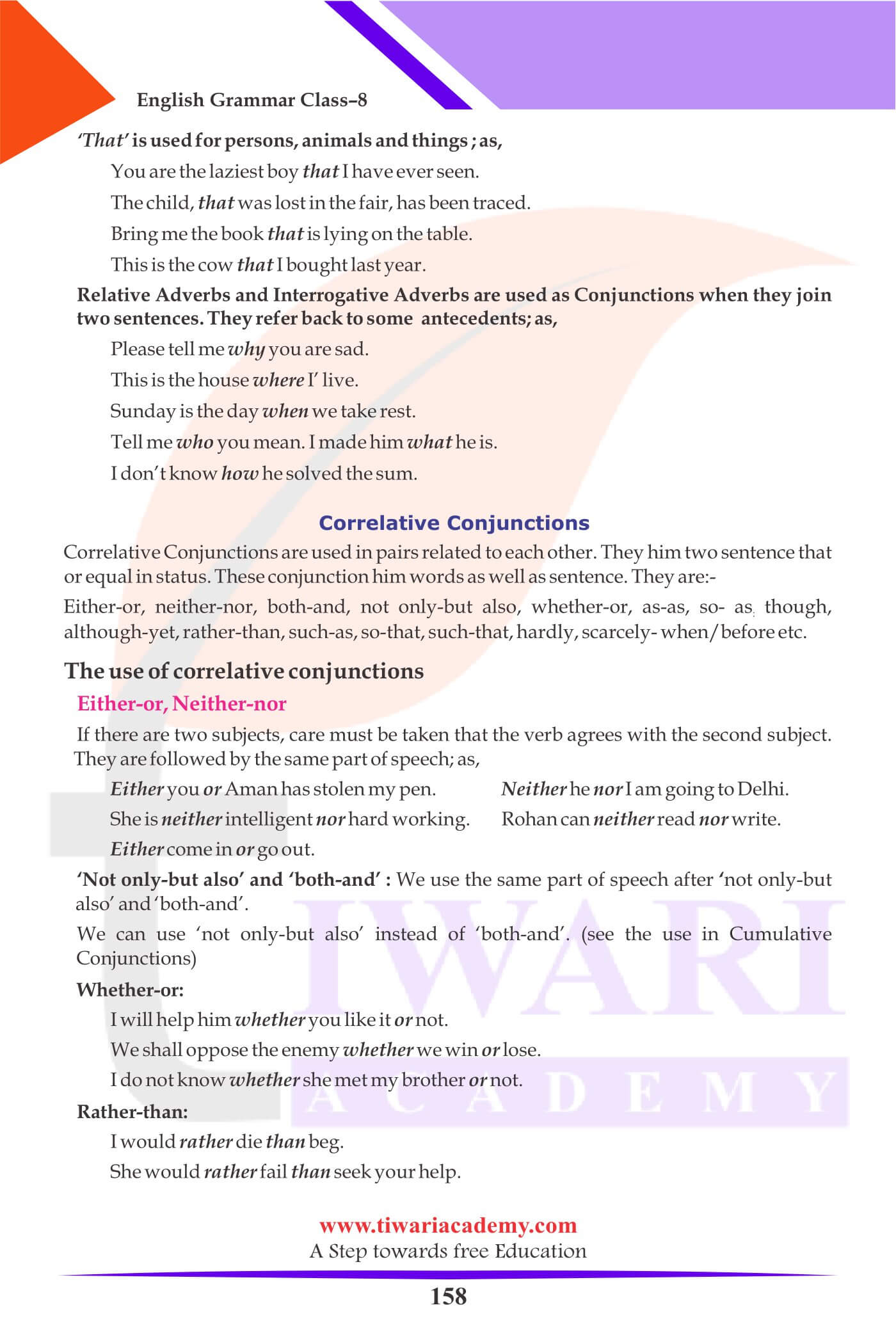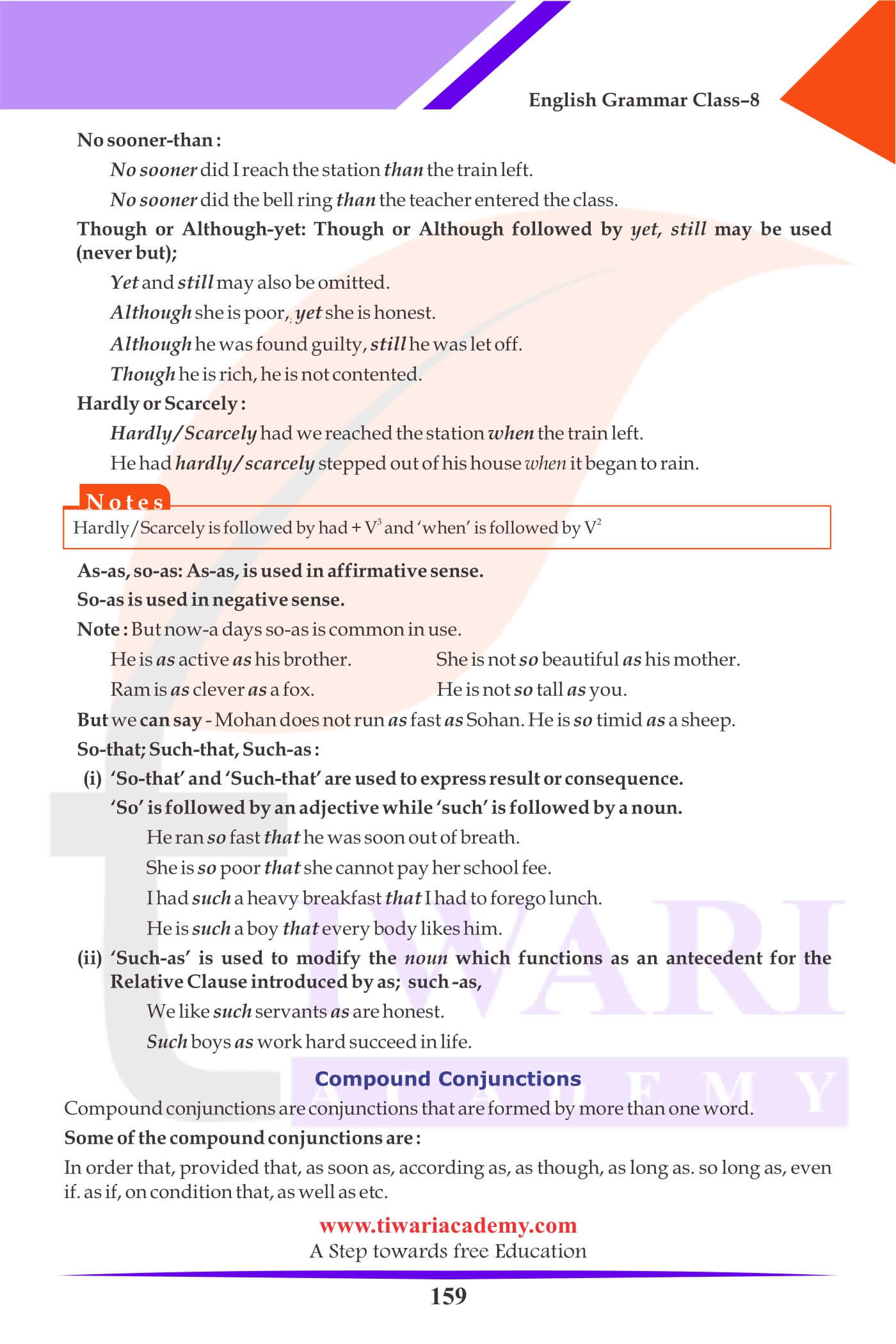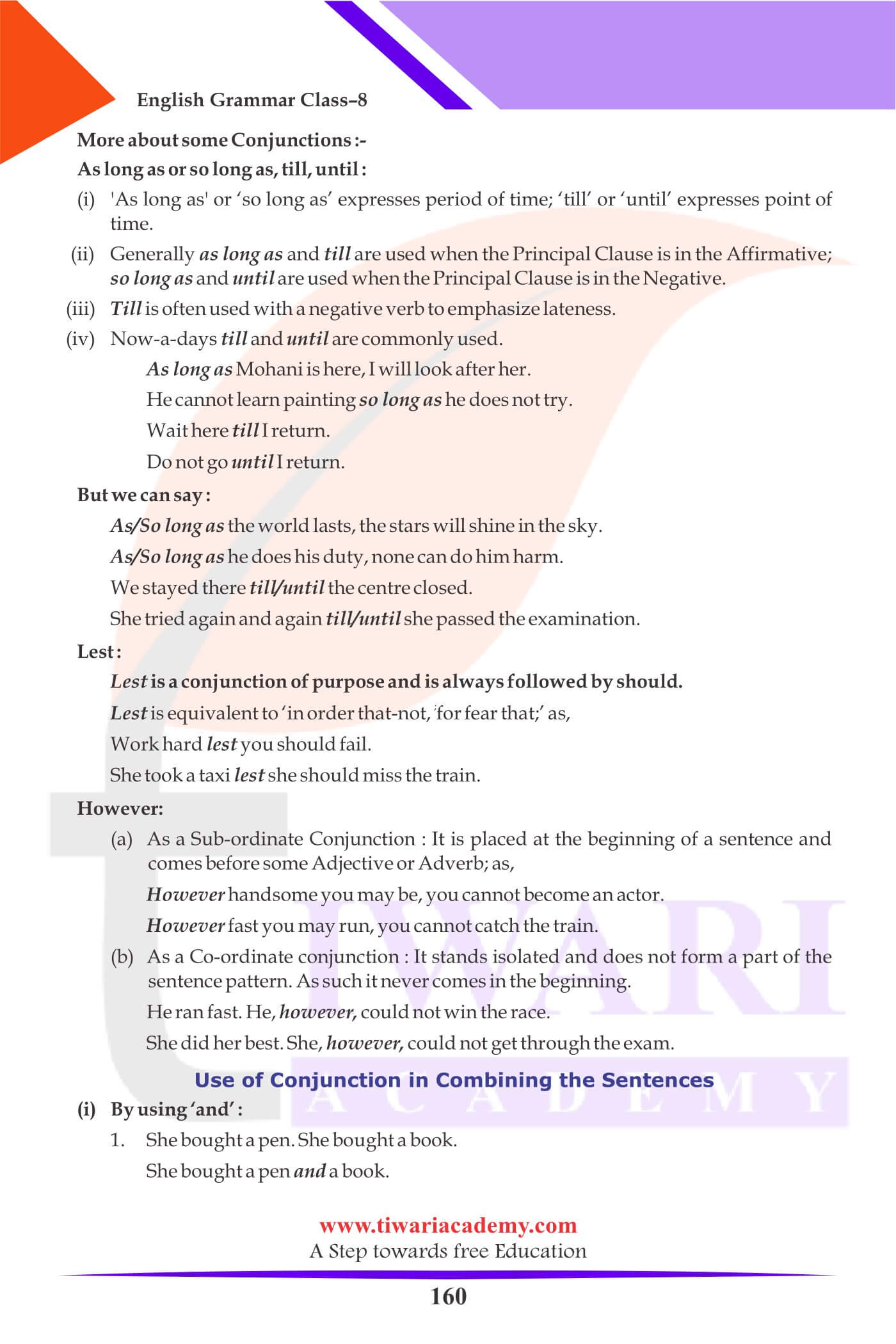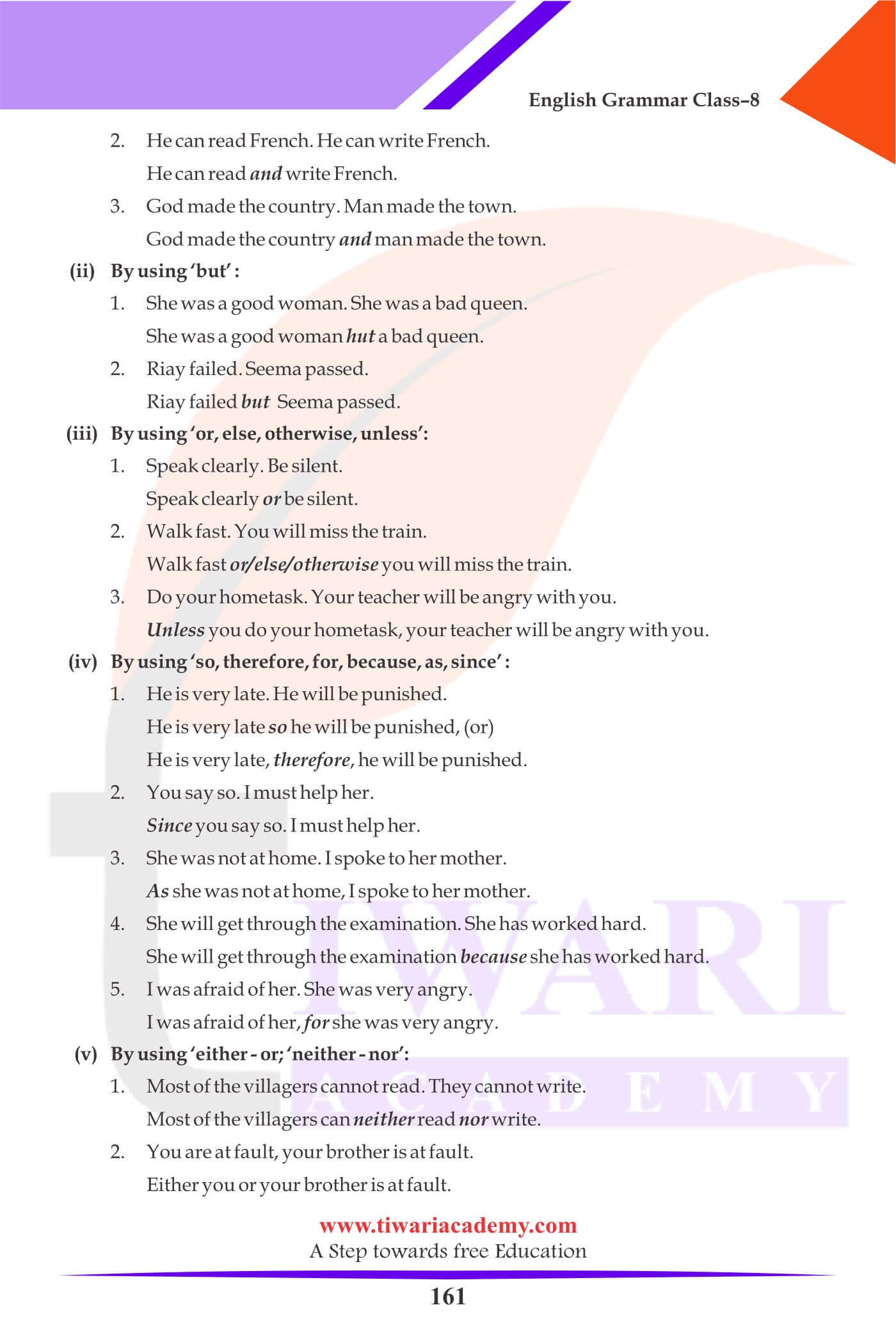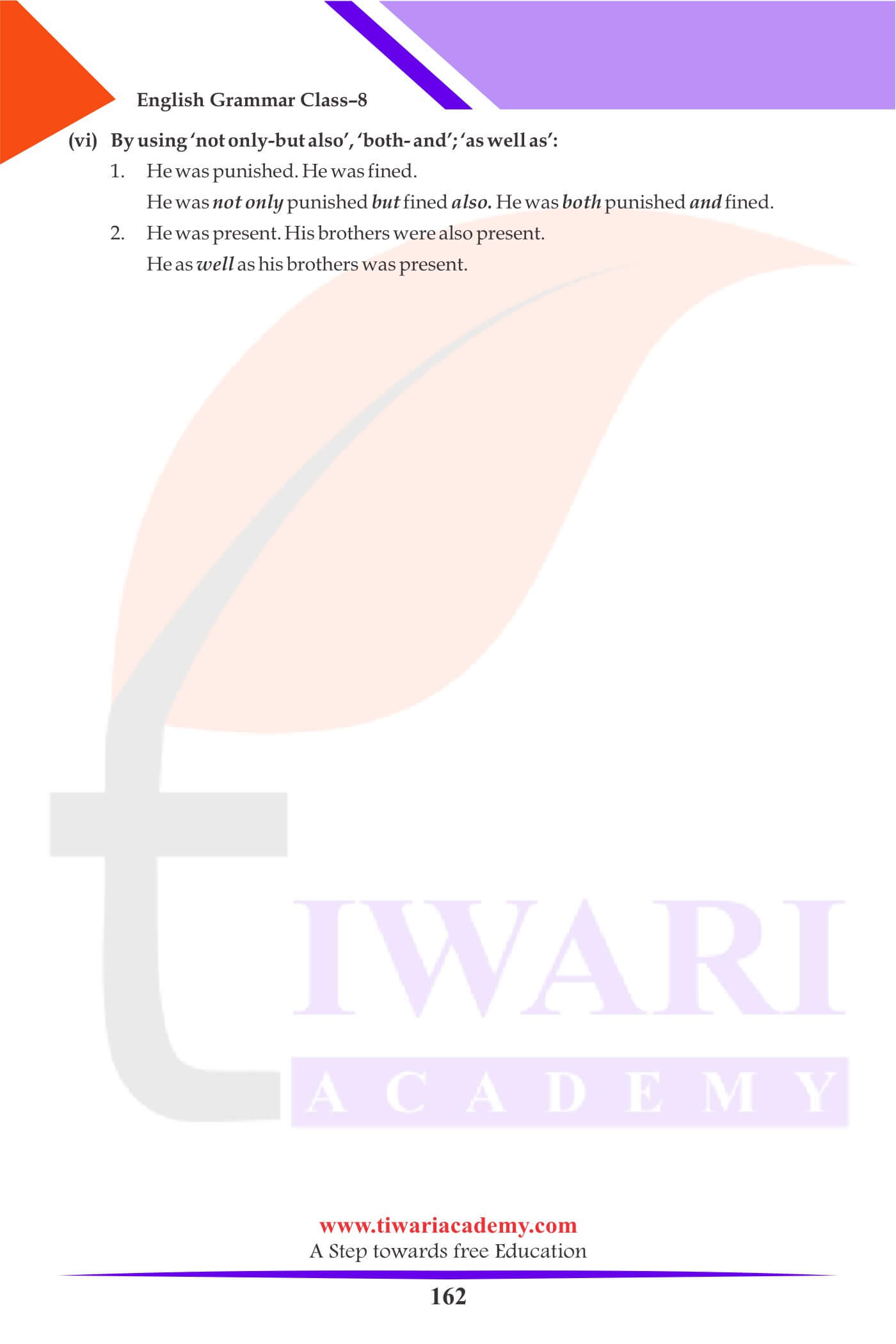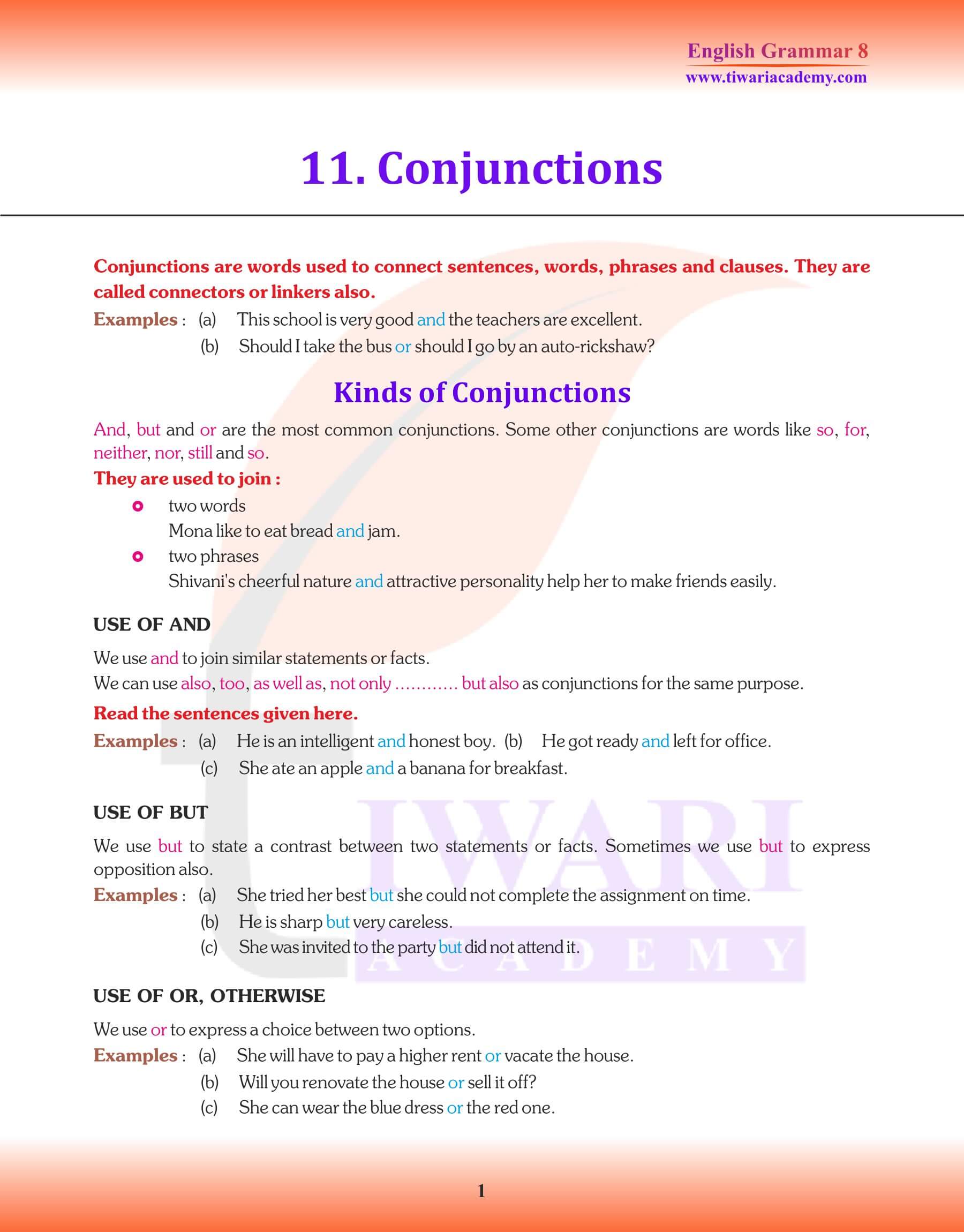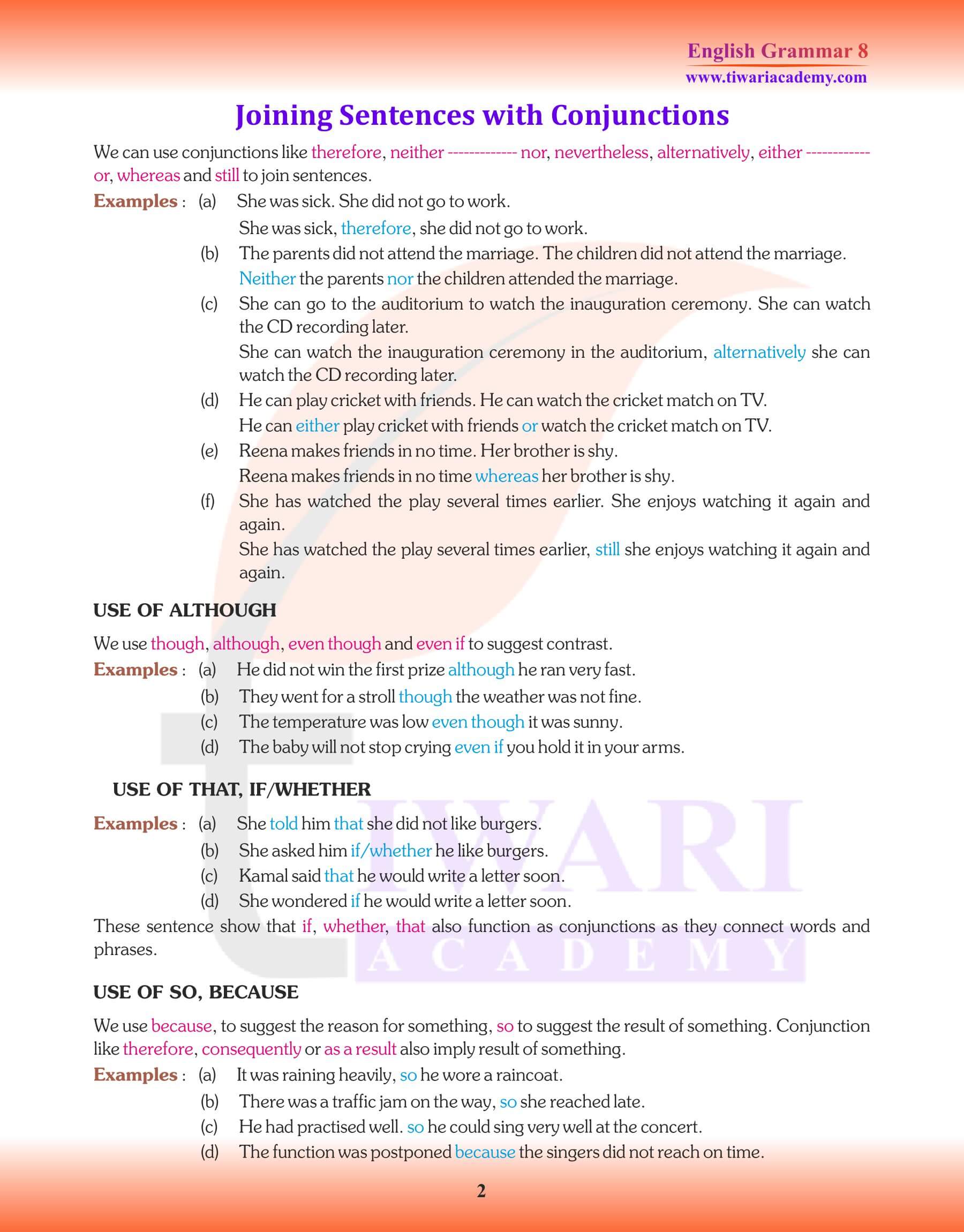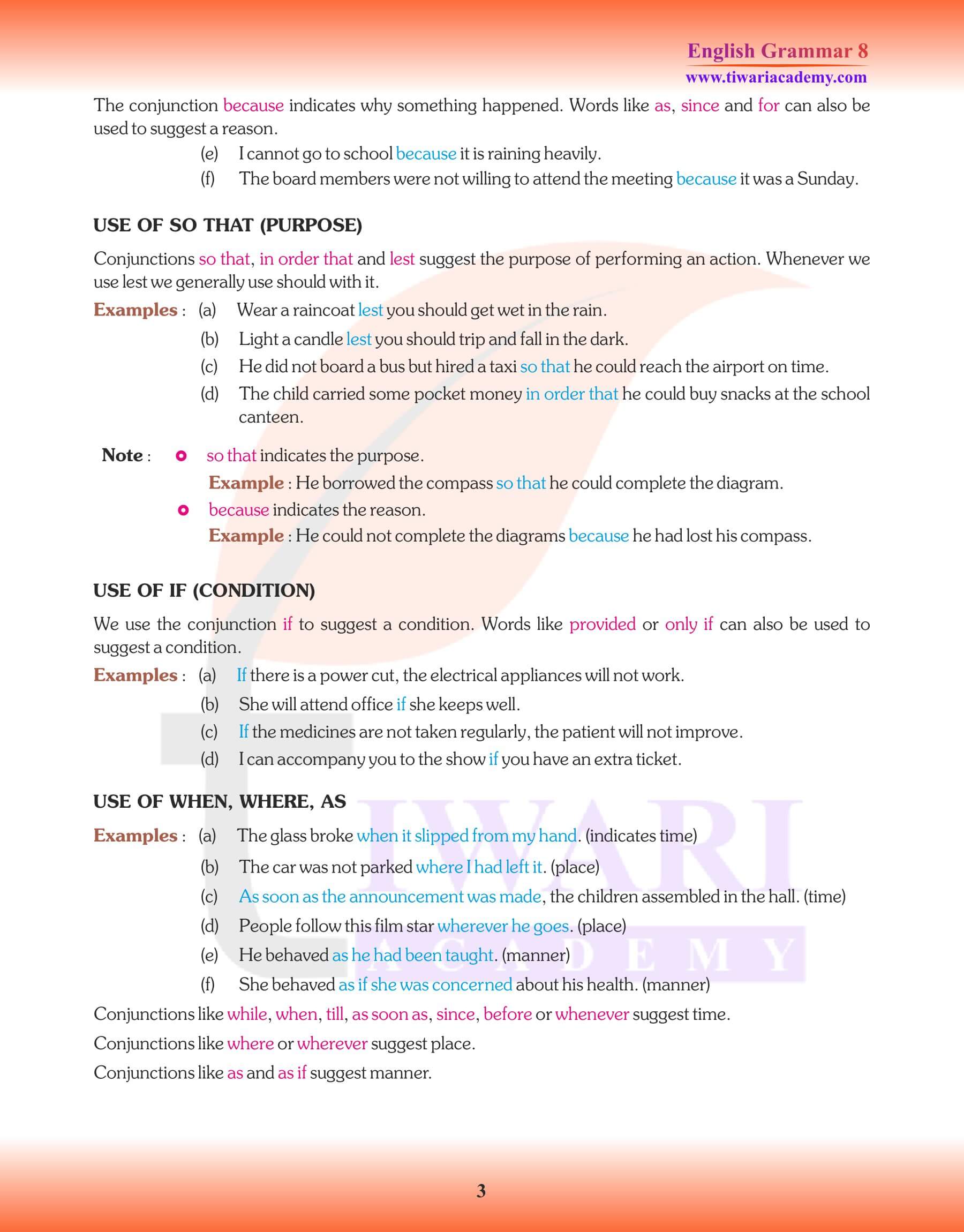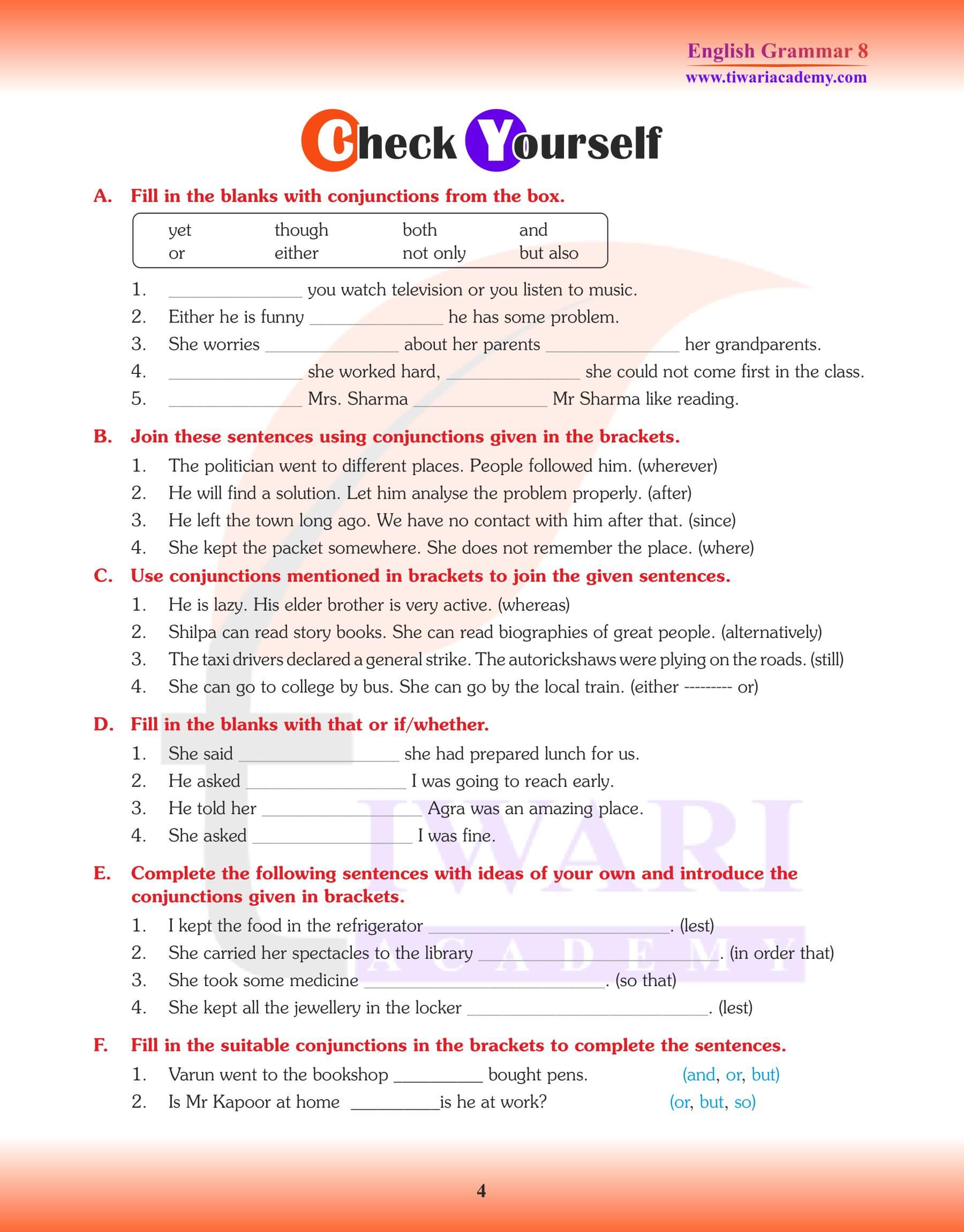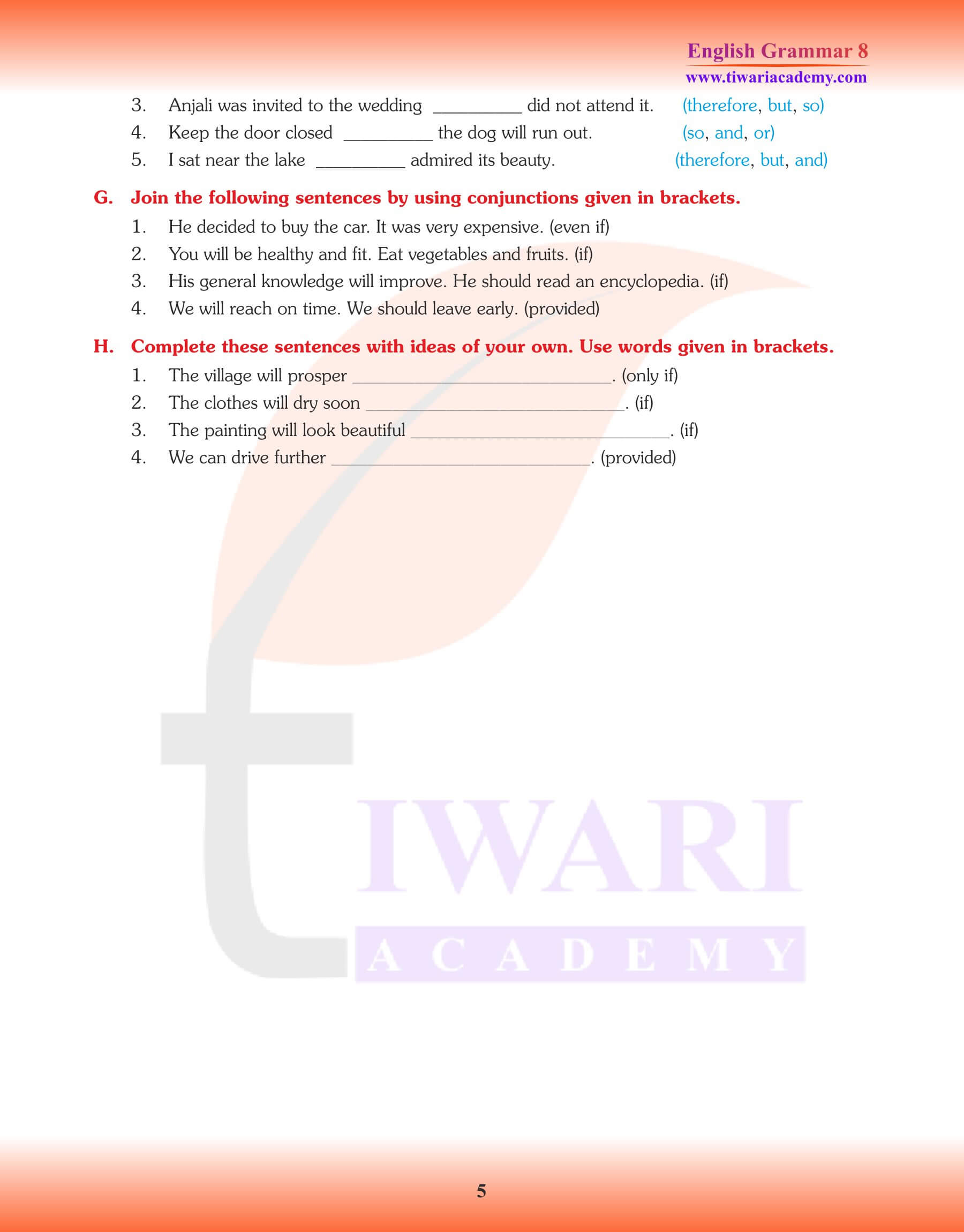Class 8 English Grammar Chapter 11 Conjunctions. A conjunction is a word which connects words, phrases, clauses, and sentences and at the same time brings about relationship between the elements thus joined. For example, Amit and Rohit are good friends, (words). Democracy is a government of the people, by the people and for the people, (phrases). He said to me that he was my friend, (clauses). Mr. Raju is a teacher and his wife is a doctor, (sentences). There are two kinds of Conjunctions, Co-ordinate Conjunctions and Sub-ordinate Conjunctions.
In the realm of English grammar, Chapter 11 of the Class 8 curriculum dives into the intricate world of ‘Conjunctions’. Platforms like Tiwari Academy, with their extensive NCERT Solutions, have made this topic more approachable for students, ensuring they grasp the concept thoroughly and apply it seamlessly in their writing.
Conjunctions, often termed as the ‘linking words’ in English, hold a unique position in the structure of sentences. They possess the powerful ability to bind words, weave phrases together, link clauses, and even merge complete sentences. By doing so, they not only connect different elements but also illustrate the underlying relationship between them. For instance, in the sentence “Amit and Rohit are good friends,” the conjunction ‘and’ binds two individual names, portraying a bond of friendship.
| Class: 8 | English Grammar |
| Chapter: 11 | Conjunctions |
| Academic Session: | 2024-25 |
| Textbooks: | Course Book and Revision Notes |
Kinds of Conjunctions
1. Co-ordinate Conjunctions
2. Sub-ordinate Conjunctions
CO-ORDINATE CONJUNCTIONS
Co-ordinate conjunctions join words, phrases, clauses, and sentences of equal rank or
grammatical units of the same kind. For, not, nor, but, or, yet and so are coordinating conjunctions.
Kinds of Co-ordinate Conjunctions
(a) Cumulative or Copulative Conjunctions
(b) Adversative Conjunctions
(c) Alternative or Distinctive Conjunctions
(d) Illative or Illustrative Conjunctions
Cumulative or Copulative Conjunctions
Cumulative Conjunctions add one statement or a fact to another Such Conjunctions are:
1. Tagore was not only a poet but also a good painter.
2. Both you and he are at fault.
Adversative Conjunctions
Adversative Conjunctions show contrast between two statements when joined. They are: however, whereas, while, only, still, but, yet. nevertheless, etc.
1. He ran fast. He. however, could not catch the bus.
2. I was reading while she was dozing.
Another prime example showcasing the versatility of conjunctions is the phrase: “Democracy is a government of the people, by the people and for the people.” Here, the repeated use of the conjunction ‘and’ stitches together separate phrases, emphasizing the essence of democracy.
Furthermore, the conjunction can also bridge clauses and whole sentences. In “He said to me that he was my friend,” the word ‘that’ acts as a conjunction connecting two clauses. Similarly, in “Mr. Raju is a teacher and his wife is a doctor,” ‘and’ binds two independent sentences, shedding light on the professions of two individuals.
Alternative or Distinctive Con junctions
Alternative Conjunctions express a choice between statements. Such Conjunctions as,
1. Either you or your brother has broken the Slate.
2. Neither Ram nor his brothers are present.
Illative or Illustrative Conjunctions
Illative Conjunction shows that one fact or statement is inferred and proved from the other. They are: therefore, then, so, for, consequently etc.
He is honest, therefore, he is respected.
Subordinate Conjunctions
Sub-ordinate conjunctions help to connect Subordinate Clause or Dependent clause to the main clause. Subordinate Conjunctions denote: (i) Time (ii) Cause or Reason (iii) Purpose
(iv) Result (v) Condition (vi) Place (vii) Manner or Extent (viii) Comparison (ix) Concession or Contrast. They are of nine kinds.
1. Do not go until I get ready.
2. You cannot pass unless you work hard.
Relative Adverbs and Interrogative Adverbs are used as Conjunctions when they join two sentences. They refer back to some antecedents as,
1. Please tell me why you are sad.
2. This is the house where I’ live.
Correlative Conjunctions
Correlative Conjunctions are used in pairs related to each other. They him two sentence that or equal in status. These conjunctions him words as well as sentence. They are:- either-or, neither-nor, both-and, not only-but also, whether-or, as-as, so- as though, although-yet, rather-than, such-as, so-that, such-that, hardly, scarcely- when/before etc.
Classifying conjunctions, they are broadly categorized into two types: Co-ordinate Conjunctions and Sub-ordinate Conjunctions. While the former connects elements of equal rank or importance, the latter establishes a relationship where one element depends on the other.
In conclusion, conjunctions are the unsung heroes of English grammar. They enhance coherence, clarity, and fluidity in our communication. As students explore Chapter 11 in their Class 8 English Grammar, they will uncover the magic of conjunctions, turning them into proficient and expressive communicators. With online educational platforms now offering a wealth of resources, mastering conjunctions is a breeze for today’s digital-age learners.
The use of correlative conjunctions
Either-or, Neither-nor: If there are two subjects, care must be taken that the verb agrees with the second subject. They are followed by the same part of speech as,
1. Either you or Aman has stolen my pen.
2. Neither he nor I am going to Delhi.
Compound Conjunctions
Compound conjunctions are conjunctions that are formed by more than one word.
| Till | Until |
|---|---|
| Wait here till I return. | Do not go until I return. |
| We stayed there till | Until the centre closed. |
| She tried again and again till | until she passed the examination. |
Use of Conjunction in Combining the Sentences
| And | But |
|---|---|
| She bought a pen and a book. | She was a good woman but a bad queen. |
| He can read and write French. | Riay failed but Seema passed. |
So-that, Such-that, Such-as: “So-that” and “Such-that” are used to express result or consequence. “So” is followed by an adjective while “such” is followed by a noun.
| So-that | Such-that | Such-as |
|---|---|---|
| He ran so fast that he was soon out of breath. | I had such a heavy breakfast that I had to forego lunch. | We like such servants as are honest. |
| She is so poor that she cannot pay her school fee. | He is such a boy that everybody likes him. | Such boys as work hard succeed in life. |
